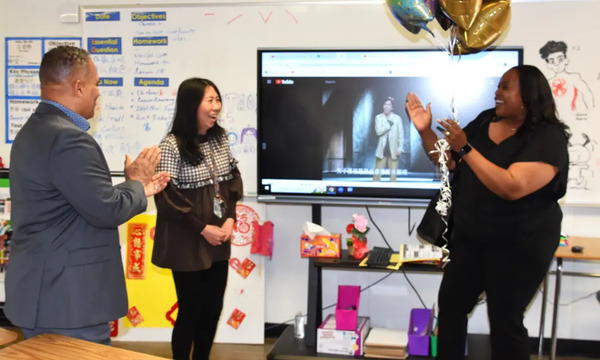The mission and values of Biola University have not veered from its founding in the heart of Los Angeles in 1908. Since Biola moved to the La Mirada suburbs in 1959, opportunities for influence in the church, society and culture as tied to its physical location in Los Angeles have been maintained through various serving opportunities. However, now with the development of Biola University’s new Urban Studies program, Biola is returning to its roots and connecting academic programs with the heart of Biola in Los Angeles.
“Being in the Los Angeles metroplex, we are uniquely situated to build a greater understanding of how global cities work and how we as God's people can build the Kingdom within them,” said Bradley Christerson, co-director of Biola’s newest major, Urban Studies, and associate professor of Sociology. “That is what the urban studies major is all about.”
Biola launched the new Urban Studies major this Fall semester with fervor and excitement from students who filled classes quickly. Christerson and Daniel Callis, associate professor of art, are co-directors of the new major which will be an interdisciplinary, integrative program that puts Biola on the cutting edge of urban studies and furthers Biola’s university plan. The new program provides students with the analytic tools necessary to be a professional who is knowledgeable about the different types of urban issues and realities, to have practical experience in institutional settings appropriate to their personal, professional and academic interests, and to be an effective Christian presence and witness any urban setting.
The new major not only supplements Biola’s vision tremendously as a global center for Christian thought and an influential evangelical voice that addresses crucial cultural issues, but also harmonizes Biola’s newest initiatives with the foundations Biola was built upon. Biola aspires to be a university distinguished for championing the truth of a biblical worldview, respected for its academic quality, community vitality and relevant contribution to culture, and a university intentionally following Jesus’ command to love the Lord and to love our neighbor by serving the needs of our world.
“Given our heritage in the heart of downtown Los Angeles, we have a unique opportunity—a calling—to reconnect with the city. We believe the city beckons us to understand it more fully and serve it more deeply, working with schools, churches and organizations to realize the love and hope of God’s kingdom on the city streets of our very own community,” said Biola University President Barry H. Corey.
Integrating coursework with experiential learning opportunities, students, who desire to be a Christian presence in the urban community, will receive an education developing an understanding and appreciation for the city.
In implementing the new Urban Studies program, a key factor in the integration of experiential learning will be the future presence of Biola’s own “Center for Integrative Urban Studies.” This center will not only be beneficial to the students majoring in Urban Studies, but for the entire university as a whole. The CIUS will offer courses, workshops, internships, field studies, and integrative seminars that address the diverse populations of the city, the systems that affect them, the arts that express their experiences, and the physical environment in which all of this occurs.
“It is so important that we understand and engage the urban region in which we are located,” said Christerson. “The greater Los Angeles area represents the future of world cities in many ways — its ethnic diversity, its extremes of wealth and poverty, its divisions as well as its opportunities for human thriving and cultural achievements.”
Students from all academic departments will benefit from the center, including, but not excluding, nursing, education, art and intercultural studies majors. Biola is looking to progressively lease space and eventually purchase a building in downtown Los Angeles — a place to host lectures, workshops, resident professors and artists and essentially a location for students to learn in an urban environment.
Deepening Biola’s initiative to follow Jesus’ command and from a true desire to love our neighbor, the CIUS will offer a component of educational events open to the public. The public program will include public lectures, tours, and mini-courses organized in a continuing education/lifelong learning model. These opportunities will introduce a wider public to different aspects of Los Angeles such as art galleries, museums, neighborhoods, churches, public art, film and architecture.
The Urban Studies program will ultimately cohere the future of Biola University with the foundations the university was built upon while allowing students to study in an urban environment preparing them academically, spiritually and physically to work in the inner city. This new major is significant for Biola’s vision as a global center for Christian thought and mission to serve others — our neighbors whether in Los Angeles or around the world.
Written by Jenna Bartlo, Media Relations Coordinator. Jenna can be reached at (562) 777-4061 or through email at jenna.l.bartlo@biola.edu.
 Biola University
Biola University